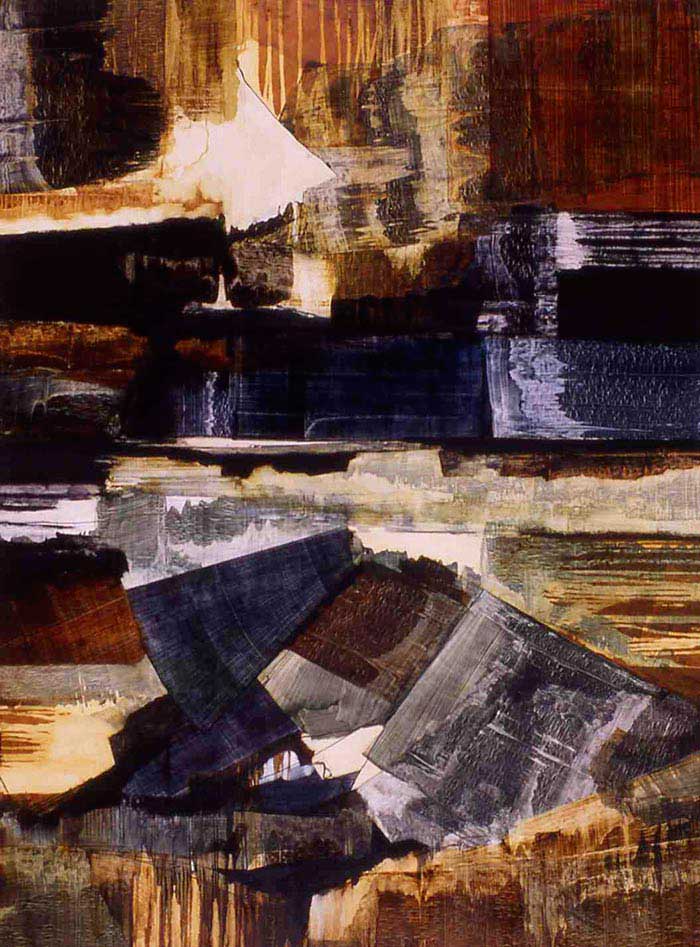Dear Artist,
An emerging New York artist I know paints quality abstracts. Over the last few years, he’s worked a day job in design and art direction, while exhibiting his paintings through an artist’s agent. Recently, he wrote, “I really need to get a show — any advice? I remain convinced that if I got a gallery show, my paintings would sell. Then I could get a studio and paint more and so on and so forth.”
Longing to be helpful, I readied a simple answer: “Be prepared.”
Here’s a longer rumination:
Artists of most stripes agree that shows can be an opportunity for creative completion, for connection and to gel and advance an artistic identity. But regardless of where these shows are held, sales aren’t always guaranteed. If sales are the goal, perhaps further questions need to be explored.
A few years ago, I was at a Yankees game with a record executive and the head of a national music store chain. “The industry’s changing,” said the store head — locations were closing and he was in the midst of his own employment polka. He leaned in. “There are three arms to any creative industry: production, marketing, and distribution. Production has been fully democratized. Anyone can make anything in their bedroom these days. Distribution has also been democratized. The Internet allows artists to reach their audience directly and to sell directly, if they choose. Marketing is the tricky one — the one that creates the chasm between the Small Artist and the Big Artist. Marketing’s a skill. The labels, galleries and publishing houses have that skill, as well as the budget and relationships to obtain substantial results. Marketing and relationships drive sales.”
Imagine a pair of cultural systems — a curatorial system alongside a democratized one. In the curatorial system, taste-makers vet quality work based on a point of view and feature an edited selection of creative works deemed marketable and worthy of attention. The rub is that a lot of good work gets left out, just as a lot of not-so-hot work gets included. The system is flawed. A kind of game surfaces to be played, influenced by politics, fashion, bureaucracy or economics.
The democratized system says that everyone is entitled to make whatever they want and to market it to the best of their ability. Democracy creates a global buffet of diversity. Within this do-it-yourself freedom, space is available for each special snowflake. But in this game’s populist glory lurks the insidious risk of mediocrity. Playing the game, in both systems, can become less about the work and more about the game. How do we create and offer our best? Do we need help? In either system, when the game is just, can everyone win?
 Sincerely,
Sara
PS: “There’s no such thing as an undiscovered genius.” (Strother McMinn)
“Leap, and the net will appear.” (John Burroughs)
“If you can dream it, you can achieve it.” (H. D. Genn)
Esoterica: Playing needn’t be a soul destroyer, nor a full-time obsession. Artists live in an imperfect world where affairs of the heart must sometimes be compromised with business. As our Art World continues to evolve, we might remember that the best thing we can do is to focus on the work. “Keep busy while waiting for something to happen,” said Dad. At the Yankees game, I turned to the record exec and asked him to name his favourite band. “I don’t know much about music, Sara,” he said. “My background is in the auto-industry.”
[fbcomments url=”http://clicks.robertgenn.com/game-time.php”]
Featured Workshop: Sam D’Ambruoso
Sincerely,
Sara
PS: “There’s no such thing as an undiscovered genius.” (Strother McMinn)
“Leap, and the net will appear.” (John Burroughs)
“If you can dream it, you can achieve it.” (H. D. Genn)
Esoterica: Playing needn’t be a soul destroyer, nor a full-time obsession. Artists live in an imperfect world where affairs of the heart must sometimes be compromised with business. As our Art World continues to evolve, we might remember that the best thing we can do is to focus on the work. “Keep busy while waiting for something to happen,” said Dad. At the Yankees game, I turned to the record exec and asked him to name his favourite band. “I don’t know much about music, Sara,” he said. “My background is in the auto-industry.”
[fbcomments url=”http://clicks.robertgenn.com/game-time.php”]
Featured Workshop: Sam D’Ambruoso

You may be interested to know that artists from every state in the USA, every province in Canada, and at least 115 countries worldwide have visited these pages since January 1, 2013.

Outside the system?
A stall set up in New York’s Central Park sold just 8 works, revealed the following day to be Banksy originals, each worth £20,000.


Rocky Romance 2006 oil on canvas 96 x 72 inches by Zoe Benbow, London, UK and Tarn Valley, France |





